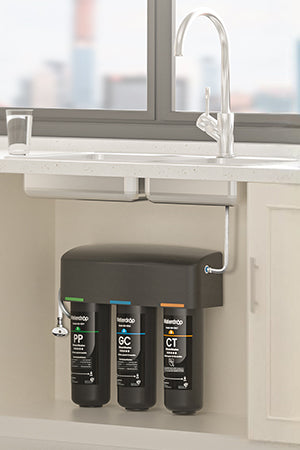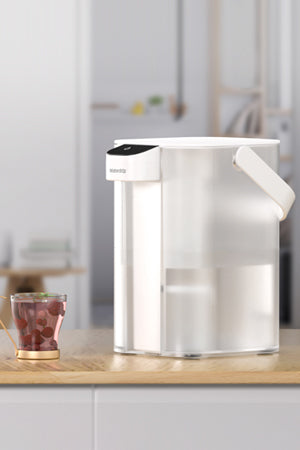Singaporeans are no strangers to hot and humid weather, and staying hydrated is a top priority. While drinking water is essential for health, did you know that consuming too much water can be harmful? This condition, known as
water intoxication or overhydration, can have surprising effects on your body. Let’s dive into what happens when you drink too much water and how to maintain a healthy balance.
What Is Overhydration?
Overhydration occurs when you drink more water than your kidneys can process, leading to an imbalance in your body’s sodium levels. This imbalance is called hyponatremia, where sodium levels in the blood become dangerously low.
Drinking excessive amounts of water within a short period or consistently over time can overwhelm your kidneys. For most people, the kidneys can process around 800-1,000 milliliters of water per hour. Going beyond this capacity forces your body to retain water, diluting vital minerals like sodium.
Symptoms of Drinking Too Much Water
Recognizing the signs of overhydration is crucial. Here are common symptoms:
Early Signs
Frequent Urination:If you’re constantly running to the bathroom, it might be a red flag.
Clear Urine:While clear urine is often seen as a sign of good hydration, persistently clear urine can indicate overhydration.
Severe Symptoms
Swelling:Puffiness in the hands, feet, or face can result from fluid retention.
Headaches:Overhydration causes cells to swell, including brain cells, leading to pressure and headaches.
Nausea and Vomiting:An upset stomach is another indicator of excess water intake.
Confusion and Drowsiness:These symptoms arise when sodium levels drop significantly.
The Dangers of Overhydration
Hyponatremia: A Serious Risk
Hyponatremia can lead to severe complications, including:
Seizures:Low sodium levels can disrupt nerve signals, causing seizures.
Coma:In extreme cases, the swelling of brain cells can result in a coma.
Death:While rare, untreated hyponatremia can be fatal.
Strain on Organs
Overhydration puts unnecessary strain on your kidneys, making them work harder to expel the excess water. Over time, this can affect kidney health.
Impact on Mental Health
Feeling bloated and unwell due to overhydration can also affect your mood and mental state. Constantly worrying about your water intake may lead to anxiety.
How Much Water Is Too Much?
The
“eight glasses a day” rule doesn’t apply universally. Water needs vary based on factors such as:
Climate
In Singapore’s tropical weather, you’ll need more water due to sweating, but it’s essential not to overdo it.
Activity Level
Active individuals lose water through sweat and require more hydration. However, it’s important to replenish fluids gradually.
Diet
Foods high in water content, like fruits and vegetables, contribute to your hydration levels, reducing the need for excessive drinking.
Body Size
Larger individuals may require more water than smaller individuals, but even this has limits.
As a general guideline, drink when you’re thirsty and let your body signal when it’s time for more water.
Tips to Avoid Overhydration
Listen to Your Body
Your body has natural thirst signals—don’t ignore them! Drinking water when you’re not thirsty can lead to overhydration.
Monitor Your Urine
A light-yellow color in urine generally indicates proper hydration and a healthy balance of fluids in your body. While many people associate clear urine with being well-hydrated, it’s not always the ideal goal.
Completely clear urine may sometimes signal overhydration, which can dilute essential electrolytes and potentially lead to conditions like hyponatremia.
Balance Electrolytes
In hot climates like Singapore, sweating causes a loss of both water and electrolytes. Replenish these by consuming electrolyte-rich drinks or foods such as bananas and coconut water.
Hydrate Gradually
If you’ve been sweating a lot or feel dehydrated, sip water slowly instead of chugging large amounts at once.
Special Considerations for Singaporeans
During Exercise
Whether you’re jogging or doing yoga, hydration is key. Drink small amounts regularly during exercise rather than waiting to feel thirsty.
After Meals
In Singapore, hawker food is often salty, which can increase your thirst. While it’s tempting to guzzle water, pace yourself to prevent overhydration.
For the Elderly
Older adults may have a reduced sense of thirst, increasing their risk of both dehydration and overhydration. Encourage them to drink water moderately throughout the day.
When to Seek Medical Help?
If you experience confusion, vomiting, seizures, swelling in the hands or feet, or difficulty breathing after consuming large amounts of water, you should seek medical help without delay. These symptoms may indicate that your body’s sodium levels have dropped dangerously low, affecting brain function and other vital processes. In extreme cases,
hyponatremia can result in coma or even be life-threatening.
Other warning signs might include headache, nausea, fatigue, or muscle weakness. While these symptoms may seem mild initially, they can quickly escalate if the underlying issue is not addressed.
Prompt diagnosis and treatment are crucial in managing hyponatremia. Treatment may involve limiting water intake, intravenous sodium administration, or medications to manage symptoms. Being mindful of your water consumption and recognizing these warning signs can help you avoid serious complications and ensure your safety.
The Bottom Line
Water is vital for life, but balance is essential. Overhydration, though less common than dehydration, is a real concern that can affect your health. By understanding your body’s needs and listening to its signals, you can avoid the pitfalls of drinking too much water. Remember, hydration is about quality, not just quantity. Stay hydrated smartly, and you’ll feel your best in Singapore’s tropical climate.





































































